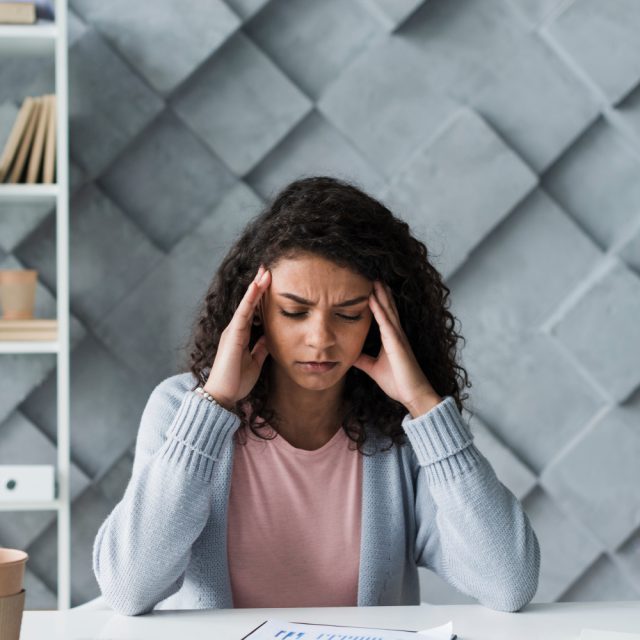


Stress is an automatic physical, mental and emotional response to a difficult event. It’s a common part of everyone’s life. When used positively, stress can lead to growth, action and change. But negative, long-term stress can lessen your quality of life.
Understanding Depression and Anxiety
Depression and anxiety are complex mental health conditions characterized by a range of symptoms that can significantly impact an individual’s quality of life. While they often coexist, they are distinct disorders with unique treatment approaches.
Depression is a mood disorder characterized by persistent sadness, loss of interest in activities, changes in appetite and sleep, fatigue, feelings of worthlessness, and difficulty concentrating. It can interfere with daily life, relationships, and work.
Anxiety is characterized by excessive worry, restlessness, irritability, fatigue, muscle tension, and difficulty concentrating. It can manifest as generalized anxiety disorder, panic disorder, social anxiety disorder, or specific phobias.
Symptoms of Depression
Depression is characterized by a persistent feeling of sadness, emptiness, or hopelessness. Other common symptoms include :
Symptoms of Anxiety
Anxiety is characterized by excessive worry and fear, often accompanied by physical symptoms. Common anxiety symptoms include :
It’s important to note that these are just some of the possible symptoms, and individuals may experience symptoms differently. If you or someone you know is experiencing symptoms of depression or anxiety, it’s essential to seek professional help. Early intervention can make a significant difference in managing these conditions.



Counseling provides a supportive environment for individuals to explore the root causes of their depression or anxiety, develop coping strategies, and build resilience. A skilled therapist can offer invaluable guidance and support in navigating these challenges.
Types of Counselling
Therapeutic Approaches

The Counselling Process
The counselling process typically involves several stages :
Overcoming Challenges
Therapy is a journey, and progress may vary. It’s important to be patient and persistent. Setbacks are normal, and open communication with the therapist is crucial.
Seeking Help
If you or someone you know is struggling with depression or anxiety, seeking professional help is essential. Early intervention can improve outcomes.
Remember, you are not alone. Many people experience depression and anxiety, and effective treatments are available.


The first thing that we do to make sure that you get the right treatment is by getting certain tests done which would mostly include but not limit to CBC, Thyroid panel, Hormone Assay, Testosterone levels, androgen assay, sugar levels, HbA1c, urine analysis, DHEA levels, Cortisol levels, Liver function tests, Lipid profile, Vitamin B12 and D levels, serum electrolytes, iron panel. Based on this, we focus to identify underlying causes and focus areas to administer treatment plan for stress issues esp aimed to prevent future complications from long standing stress issues.
At HormoneHub, we utilize “the Elixir therapy” which is a holistic and multidimensional approach to balance the physiological hormones, overcome deficiencies, restore innate harmony, energize, rejuvenate and there by sustaining long term well-being. Our specialists in each segment inculcate the methodologies and techniques which one can practice lifetime and ensure the sustenance on own thereby.


Yes, chronic stress is a significant contributor to the development of depression and anxiety. Managing stress effectively is crucial for mental health.
Absolutely. Anxiety often manifests with physical symptoms like rapid heartbeat, sweating, trembling, and difficulty breathing.
Yes, these conditions can strain personal and professional relationships. Open communication and seeking support can help.
Regular physical activity is a valuable tool for managing depression and anxiety symptoms. It boosts mood and reduces stress.
Offer support, encourage them to seek professional help, and be patient and understanding.
Sadness is a normal human emotion, while depression is a persistent and debilitating mood disorder characterized by a range of symptoms affecting daily life.
Experiencing occasional feelings of anxiety or sadness is common. However, when these feelings persist and interfere with daily life, it may indicate a mental health condition.
Recovery time varies depending on the individual, severity of symptoms, and chosen treatment approach. Therapy and medication often play a crucial role.
While medication can be effective, many people find relief through therapy, lifestyle changes, and self-care strategies.
If symptoms interfere with daily life, relationships, or work, or if you have thoughts of self-harm, it’s essential to consult a mental health professional.
Please Note : The HHC holds sole discretion over decisions regarding the treatment plan, session time, package, and package duration. These determinations may differ among individuals with similar complaints and are subject to the patient’s clinical needs. The Management reserves the right to adjust a chosen package based on their clinical judgment, enabling them to modify its scope or duration according to the patient’s clinical requirements.